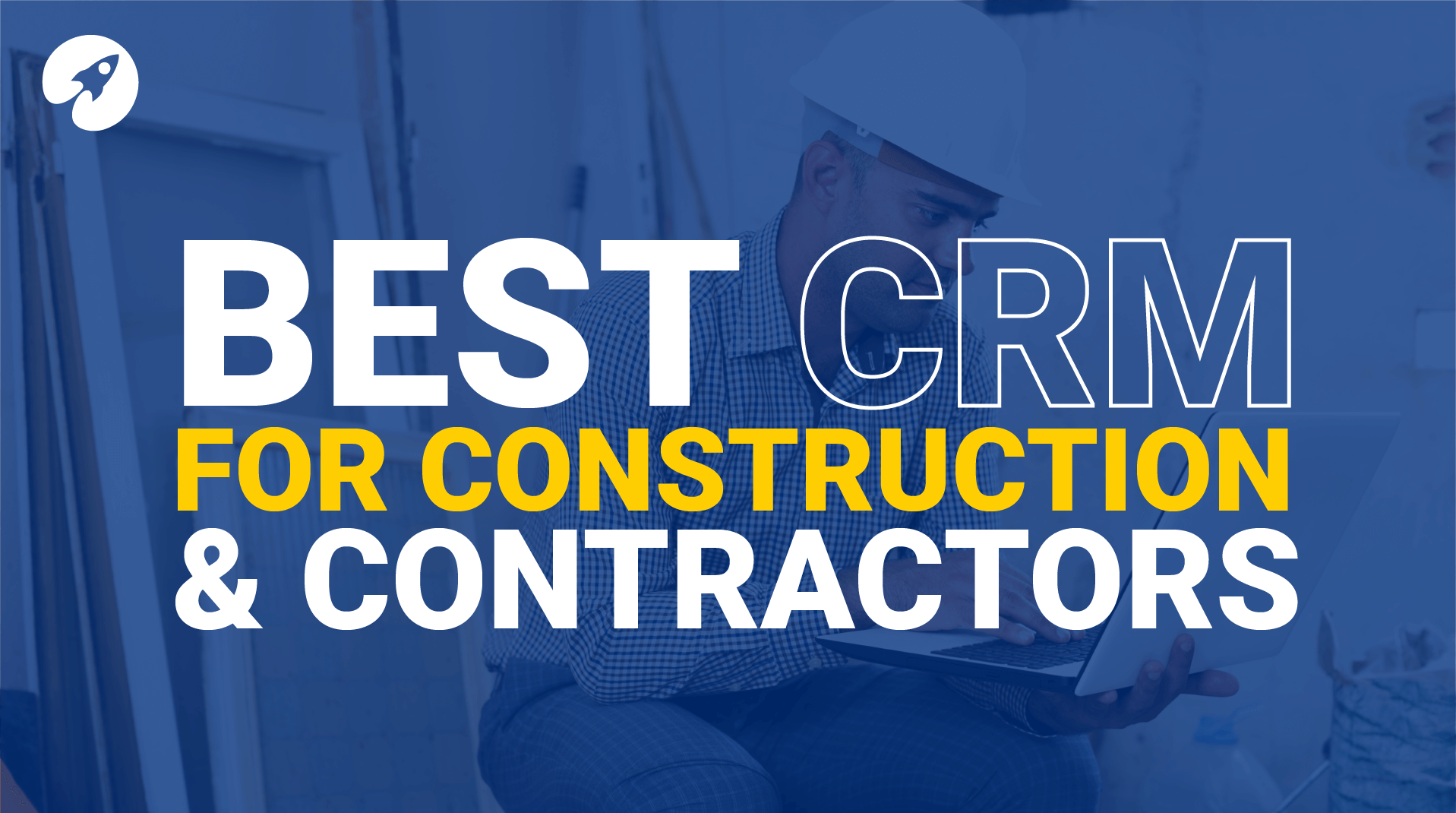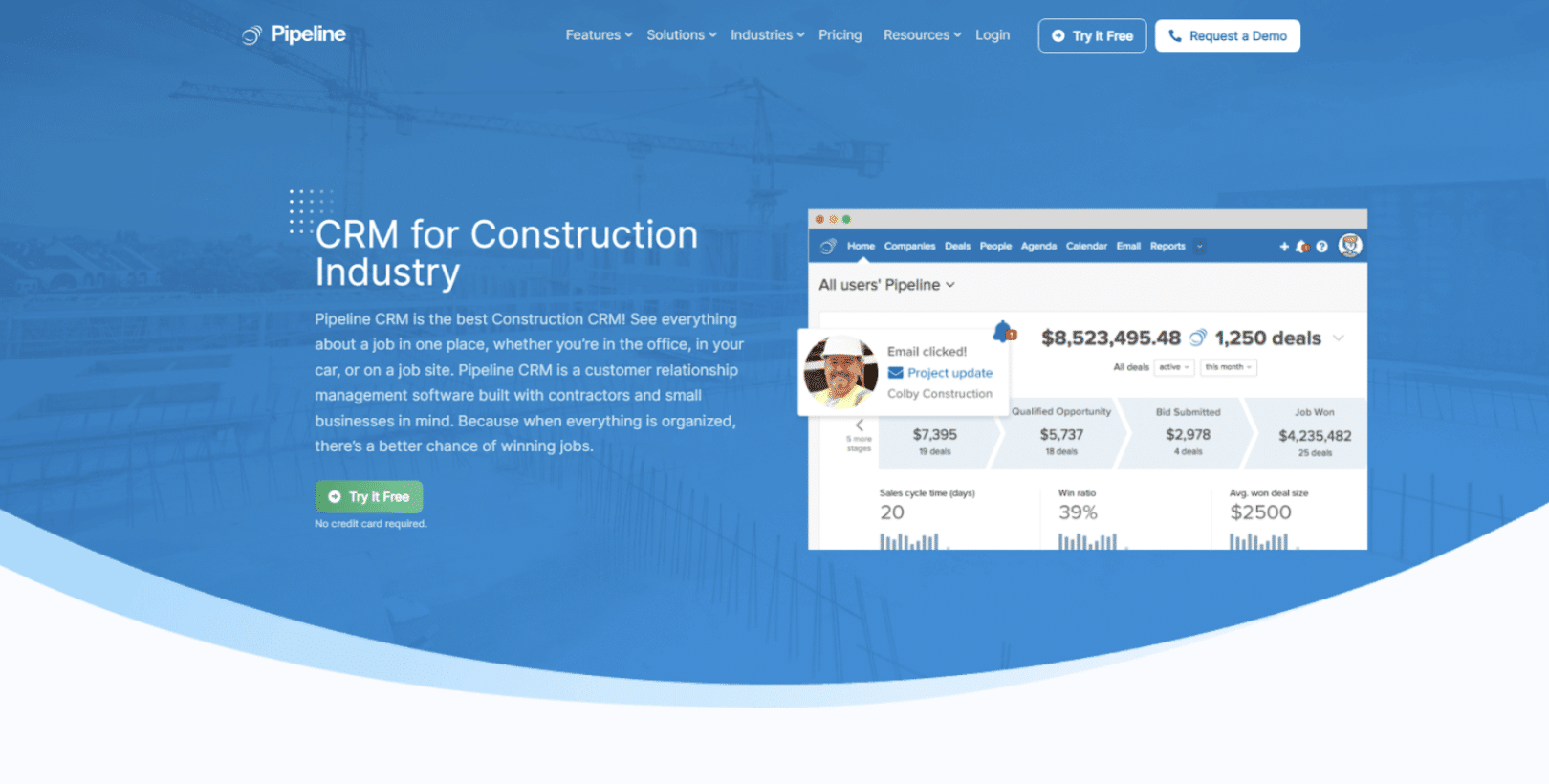Best contractor CRM offers a comprehensive solution for managing contractor businesses efficiently, enhancing communication, and tracking project progress seamlessly. Dive into the world of contractor CRM and discover the key to optimizing your operations.
Importance of CRM for Contractors: Best Contractor Crm
In the construction industry, Customer Relationship Management (CRM) plays a crucial role in managing contractor businesses efficiently. CRM systems help contractors maintain strong relationships with clients and subcontractors, ultimately leading to successful projects. By using CRM, contractors can enhance communication, track project progress, and meet deadlines effectively.
Significance of CRM in Managing Contractor Businesses
– CRM systems centralize client information, project details, and communication logs for easy access.
– Improved client communication leads to increased customer satisfaction and repeat business.
– Streamlined workflows and task management help contractors stay organized and on track.
Benefits of Using CRM to Track Project Progress
– CRM allows contractors to monitor project timelines, milestones, and budgets in real-time.
– Automated reminders and notifications help prevent delays and ensure timely project delivery.
– Data analytics and reporting features provide insights for better decision-making and project forecasting.
Features to Look for in a Contractor CRM

When selecting a CRM system for contractors, it is essential to consider key features that cater to the specific needs of the construction industry.
Key Features of Contractor CRM

– Project management tools for scheduling, task allocation, and resource planning.
– Lead tracking and management capabilities to nurture client relationships and generate new business.
– Invoicing and payment processing functionalities to streamline financial transactions.
Importance of Mobile Access and Integration
– Mobile-friendly CRM platforms enable contractors to access critical information on the go.
– Integration with other software tools like accounting systems and project management applications enhances overall workflow efficiency.
– Real-time data synchronization ensures seamless collaboration between team members and stakeholders.
Customizable Fields for Specific Contractor Needs
– CRM systems with customizable fields allow contractors to tailor data input and reporting to their unique requirements.
– Customized templates and dashboards help contractors track KPIs, project metrics, and client preferences effectively.
– Scalability and flexibility in adjusting CRM configurations accommodate business growth and evolving project demands.
Selecting the Best CRM for Contractors
Choosing the right CRM solution for a contractor business involves evaluating various options available in the market.
Comparison of Popular CRM Options for Contractors

– Analyzing features, pricing, and user reviews of CRM platforms tailored for the construction industry.
– Considering scalability, customization options, and customer support services offered by CRM vendors.
– Seeking recommendations from industry peers and conducting thorough demos and trials before making a final decision.
User-Friendly Interfaces and Ease of Implementation, Best contractor crm
– Intuitive CRM interfaces and user-friendly design enhance adoption rates among non-tech-savvy users.
– Quick implementation processes and onboarding support ensure a smooth transition to using a new CRM system.
– Training resources, tutorials, and ongoing customer service play a vital role in maximizing CRM utilization and ROI.
Insights on Scalability and Pricing Models
– Evaluating scalability options to accommodate business growth, additional users, and expanded project portfolios.
– Understanding pricing models, subscription plans, and licensing agreements to align CRM costs with budget constraints.
– Negotiating terms, seeking discounts, and exploring bundled services to optimize CRM investment for long-term success.
Implementation and Training for Contractor CRM
Efficient implementation and comprehensive training are key factors in maximizing the benefits of CRM systems for contractors.
Effective Implementation of CRM Systems
– Planning and defining project goals, data migration strategies, and user roles before CRM deployment.
– Customizing CRM configurations, workflows, and user permissions to align with contractor business processes.
– Conducting pilot tests, troubleshooting issues, and collecting feedback for continuous improvement.
Training Staff on CRM Usage and Best Practices
– Providing hands-on training sessions, workshops, and video tutorials to educate staff on CRM functionalities.
– Encouraging user adoption, data input consistency, and adherence to CRM protocols through regular training updates.
– Monitoring user engagement, performance metrics, and feedback to identify areas for additional training and support.
Tips for Ensuring a Smooth Transition to CRM
– Communicating the benefits of CRM adoption, addressing concerns, and soliciting feedback from staff members.
– Offering incentives, rewards, and recognition for staff members who actively engage with CRM tools and processes.
– Establishing a feedback loop, implementing change management strategies, and fostering a culture of continuous improvement in CRM utilization.
Closing Summary
In conclusion, embracing the best contractor CRM can revolutionize how contractors operate, leading to improved efficiency, enhanced client relationships, and streamlined project management. Take the leap towards success with the right CRM solution for your contracting business.
Answers to Common Questions
What are the key benefits of using contractor CRM?
Contractor CRM helps in managing projects, improving communication with clients and subcontractors, and tracking project progress effectively.
How important is mobile access in a contractor CRM system?
Mobile access is crucial as it allows contractors to stay connected and manage tasks on the go, increasing productivity and efficiency.
What factors should contractors consider when selecting a CRM?
Contractors should look for features like project management tools, integration capabilities, and customizable fields tailored to their specific business needs.
